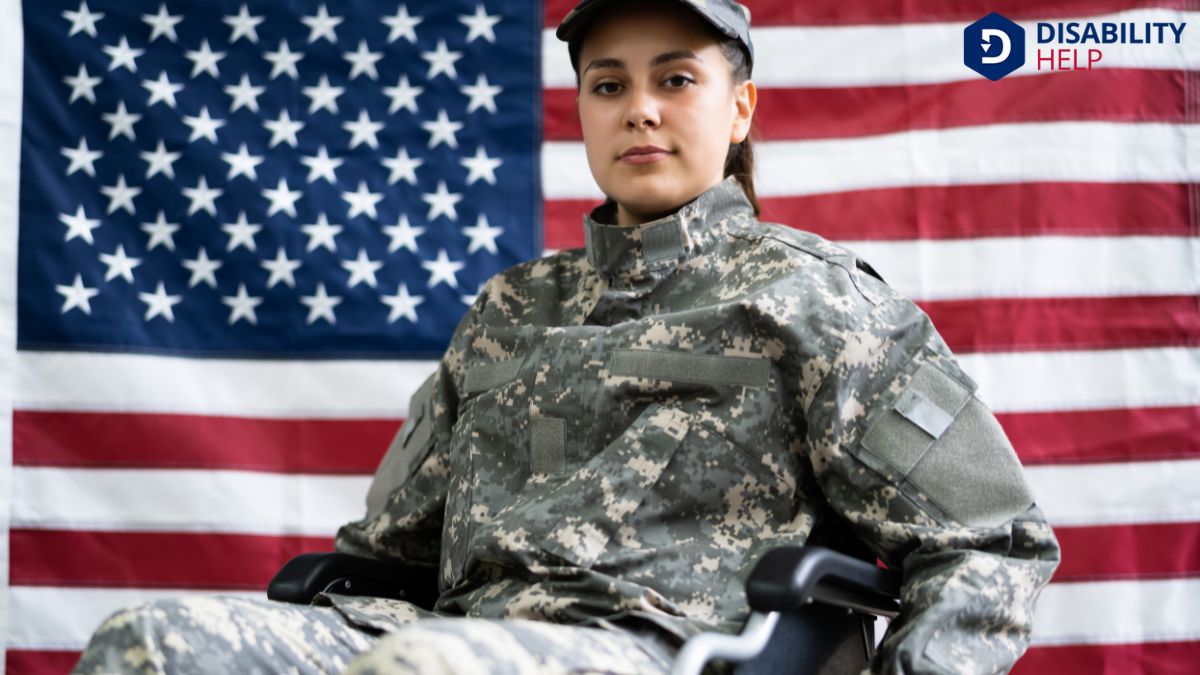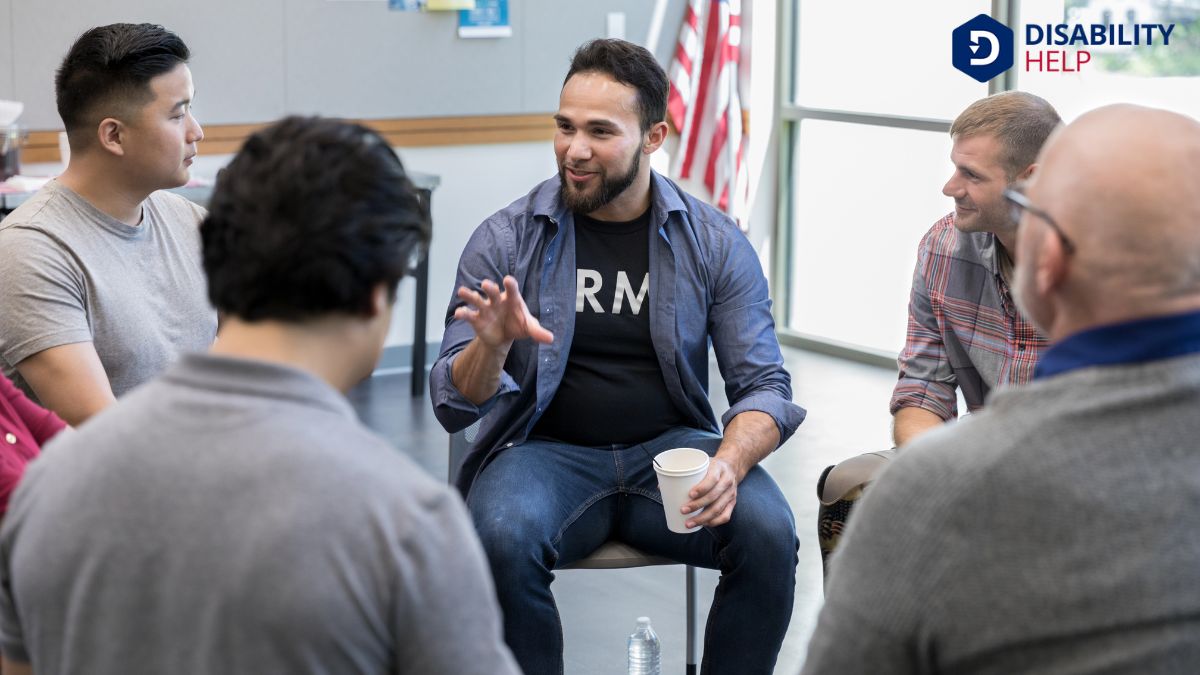It's essential for disabled veterans to find top vocational programs that support their shift to civilian careers. The GI Bill benefits cover various options, such as vocational training in high-demand sectors like healthcare, technology, and skilled trades. Vocational schools often offer flexible start dates and shorter program durations. Specialized resources like the Veterans Career Program provide free vocational counselingProfessional guidance to help individuals cope with emotional, mental, or social challenges, particu... and job placement assistance. Scholarships and resources like eBenefits can help offset costs. By exploring these opportunities, disabled veterans can secure sustainable and fulfilling employment. Explore more about how these programs can make a difference.
Key Takeaways
- Veterans Career Program offers tailored vocational counseling for disabled veterans.
- GI Bill benefits cover tuition for vocational training in high-demand sectors.
- Specialized vocational programs for veterans include fields like welding, HVAC, and cybersecurity.
- Scholarships like Sport Clips Help a Hero and American Legion Auxiliary assist with vocational training costs.
- Vocational schools provide flexible schedules and dedicated support services for veterans.
GI Bill Benefits
When it comes to supporting our nation's disabled veterans, the GI Bill offers a wealth of benefits tailored to their educational and vocational needs. With over $10 billion allocated annually for higher education, the GI Bill covers a broad spectrum of programs, including undergraduate and graduate degrees, vocational training, and more.
Specifically, under the Post-9/11 GI Bill, veterans can receive up to $26,381.37 per year to cover tuition and fees for educational programs.
The Montgomery GI Bill provides benefits for up to 36 months, with two enrollment options: MGIB-AD and MGIB-SR. These benefits extend beyond traditional education to include tutorial assistance, flight training, and technology courses.
For disabled veterans, vocational rehabilitationServices that help individuals with disabilities prepare for, obtain, and maintain employment. is an essential component. The GI Bill guarantees they've access to specialized training and support to help them move into the civilian workforce.
Vocational School Options

Exploring vocational school options uncovers a multitude of opportunities customized to meet disabled veterans' needs. These schools offer flexible start dates, allowing us to commence our education as soon as we're prepared. It's a significant advantage, enabling us to smoothly shift into a new career path without waiting for traditional semester start dates.
Vocational schools specialize in training for high-demand sectors such as healthcare, technology, and skilled trades. This focus guarantees that we acquire the skills necessary for industries actively seeking well-trained professionals. Moreover, the programs are designed to be shorter in duration so we can enter the workforce sooner and start rebuilding our careers.
Here's why vocational schools are a great option for disabled veterans:
- Flexible Start Dates: We can commence our training at our convenience.
- High-Demand Fields: Specialized training in sectors like healthcare, technology, and skilled trades.
- Dedicated Support Services: Assistance customized to help us achieve our educational and career goals.
In addition, our GI Bill benefits can help cover the costs, making vocational schools not only a practical choice but also an affordable one. These institutions understand our unique challenges and are equipped to support us every step of the way.
Career Paths for Veterans
Moving from military to civilian life can be challenging, but our military experience equips us with skills that are in high demand across various industries. Veterans often find that civilian jobs requiring vocational degrees or apprenticeships are ideal career paths for shifting to civilian life. Our roles as medics, mechanics, and electricians have direct civilian equivalents in the healthcare, automotive, and construction industries, respectively.
For those of us with experience in logistics, leadership, or technology, moving into civilian roles in supply chain management, management, or IT is often seamless. Vocational programs tailored for veterans are designed to help us leverage our military experience and skills for successful careers. These programs focus on fields like welding, HVAC, and cybersecurity, where our disciplined, problem-solving nature shines.
As veterans, we're highly sought after because our training instills reliability, leadership, and technical expertise. Vocational programs recognize this and aim to bridge any gaps, ensuring we're prepared for our new careers. Whether it's building infrastructure, maintaining critical systems, or protecting digital assets, our military background serves as a solid foundation.
Embracing these career paths can lead to fulfilling and sustainable employment post-service.
Scholarships and Resources
As we explore career paths that align with our military skills, it's important to recognize the financial and logistical support available to us. Scholarships and resources specifically tailored for disabled veterans can make a notable difference in our journey toward vocational success.
Scholarships like the Sport Clips Help a Hero Scholarship and the American Legion Auxiliary scholarships are exceptional options. They help cover tuition, fees, and other expenses, easing the financial burden of pursuing vocational programs. Additionally, various resources provide invaluable assistance tailored to our unique needs.
Here are some key resources worth exploring:
- eBenefits: A detailed platform offering information on benefits, including educational opportunities and vocational training.
- Veterans Upward Bound: A program dedicated to improving the employability of veterans through personalized training and support.
- Specialized Vocational Training Programs: These programs are tailored to align with our skills and enhance our employability.
Utilizing these scholarships and resources can greatly enhance our ability to pursue specialized vocational training, making it easier to shift to civilian careers. By taking advantage of these opportunities, we can build a brighter future and continue to serve our communities in new and meaningful ways.
Veterans Career Program

When it comes to navigating the job market post-service, the Paralyzed Veterans of America's Veterans Career Program stands out as an essential resource. This program is specifically designed to help disabled veterans, individuals leaving military service, spouses, and caregivers find their footing in the competitive employmentJobs where individuals with disabilities work alongside non-disabled individuals, earning the same w... landscape. Best of all, the vocational counseling assistance offered is completely free.
We find the hands-on approach particularly impactful. Dedicated Employment Analysts and Vocational RehabilitationThe process of helping individuals with disabilities achieve and maintain their optimal physical, se... Counselors work closely with each participant, providing personalized guidance to overcome barriers to employment. This personalized support guarantees that every individual receives the tailored assistance they need to succeed.
One of the most impressive aspects of the Veterans Career Program is its track record. Many participants have secured sustainable employment opportunities through the program, showcasing its effectiveness.
The ongoing support doesn't end once a job is secured—it continues, adapting to the evolving needs of the individual.
In a market that can seem challenging, especially for disabled veterans, having a resource like the Veterans Career Program can make all the difference. It's not just about finding a job; it's about building a fulfilling career with the support needed to navigate every step of the journey successfully.
Frequently Asked Questions
What Is the Vr&E Monthly Payment?
The Vr&E monthly payment, or Chapter 31 subsistence allowance, is tax-free and based on the E-5 with dependents rate. It's adjusted annually by BAH changes and may include extra allowances for veterans with 30% or higher disabilities.
What Can I Use Vr&E For?
We can use Vr&E for career planning, job training, and educational support. It offers job counseling, resume development, and job placement assistance. These services help us move to civilian careers and enhance our employability and independence.
What Can I Use Vr&E For?
We can use Vr&E for job training, employment accommodationsModifications or adjustments in healthcare settings to support patients with disabilities., vocational counseling, and support services. It also covers tuition, books, supplies, and housing for education at colleges, universities, technical schools, and vocational institutions.
Does Vr&E Pay Housing Allowance?
No, VR&E doesn't typically pay a housing allowance like the Post-9/11 GI Bill. However, we can get a subsistence allowance to help with living expenses during our vocational rehabilitation program. Check with our VR&E counselor for details.
Conclusion
To sum up, we've delved into how GI Bill benefits, vocational school options, and targeted career paths can pave the way for disabled veterans seeking a new start. With the right scholarships and resources, there's no limit to what we can achieve. The Veterans Career Program stands as a proof of our resilienceThe ability of individuals with disabilities to cope with and adapt to challenges and adversity. and determination. Let's take advantage of these opportunities and build a promising future together. We've got this!






